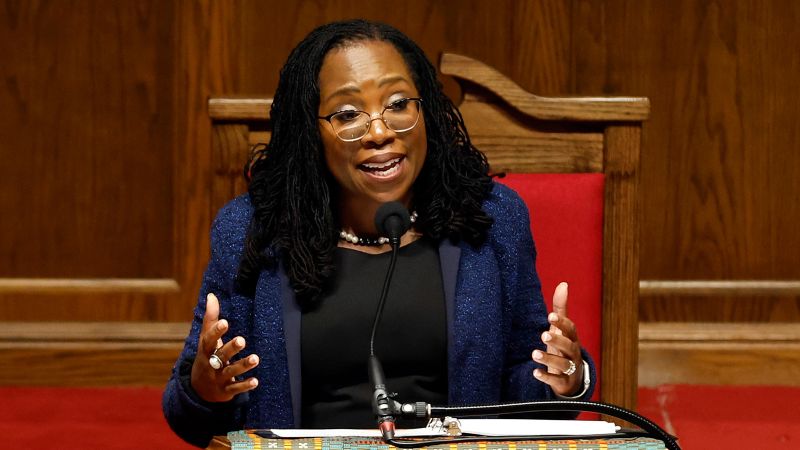On a significant day for the legal community, Supreme Court Justice Ketanji Brown Jackson criticized the verbiage and actions of former President Donald Trump without directly mentioning his name. This condemnation stemmed from perceived threats to the judiciary and to democracy itself. As revealed by Politico, her comments delivered during a legal conference in Puerto Rico spotlighted a growing trend of hostility faced by judges, remarking on the “relentless attacks and disregard and disparagement” that jurists across the country are grappling with.
Justice Jackson articulated that the attacks are methodical rather than arbitrary, asserting they aim to intimidate judges occupying crucial roles in the justice system. She noted that such threats are detrimental not only to the individuals within the judiciary but are also harmful to democracy and the Constitution, emphasizing that they “ultimately risk undermining our Constitution and the rule of law.” This strong stance underlines the critical role that judges play in maintaining the balance of power and protecting democratic principles.
The context for her remarks appears particularly relevant given former President Trump’s recent escalations against the legal establishment. Trump has made calls for the impeachment of judges who rule unfavorably on various issues, issued executive orders targeting legal firms that represent his perceived adversaries, and engaged in actions such as the arrest of a state judge for purportedly assisting an undocumented immigrant. These trends seem to contribute to a climate of fear and uncertainty among judges, highlighting the stakes involved in judicial decision-making.
Interestingly, Jackson alluded to “the elephant in the room,” a clear reference to Trump’s ongoing rhetoric against the court system, illustrating the palpable tension that exists between certain political figures and the institutions understood as guardians of law and rights. That very evening, Trump was busy addressing students at the University of Alabama, where he repeated claims that the courts were impeding his presidential duties. He questioned how “due process” could be given to individuals who have allegedly entered the country illegally, further muddying the public discourse surrounding immigration and legal processes.
Justice Jackson’s criticisms have been shaped by her experiences amidst ongoing legal disputes involving the Trump administration, some of which have made their way to the Supreme Court. Notably, she has resisted the administration’s stringent immigration policies, characterizing them as “whisking people away to a notoriously brutal, foreign-run prison,” a reflection of her prioritization of civil liberties. In other instances, she condemned actions taken by the Department of Education to cancel teacher training grants, branding the Department’s methods as “robotic” and exhibiting “highly questionable behavior.”
Though Jackson’s comments constitute a strong rebuke, she is not alone in her stances. Chief Justice John Roberts also previously addressed the discourse surrounding judicial conflicts, issuing a rare statement in March that reinforced the principle that impeachment is not a valid reaction to disagreement with judicial decisions. Both justices express a broader concern regarding the implications of political rhetoric on the perception and operations of judicial authority.
In conclusion, Justice Ketanji Brown Jackson’s comments not only underscore significant concerns about the relationship between the judiciary and political power but also highlight a cautionary narrative in which the integrity of legal institutions could be jeopardized by continuous, targeted criticism from high-profile political figures. The ongoing struggle between maintaining democratic principles and navigating the complex landscape of political input continues to define contemporary dialogue around judicial independence, emphasizing the need for a reaffirmation of respect for the rule of law. The ramifications of these discussions resonate beyond courtrooms, capturing the essence of democratic governance and constitutional adherence.



